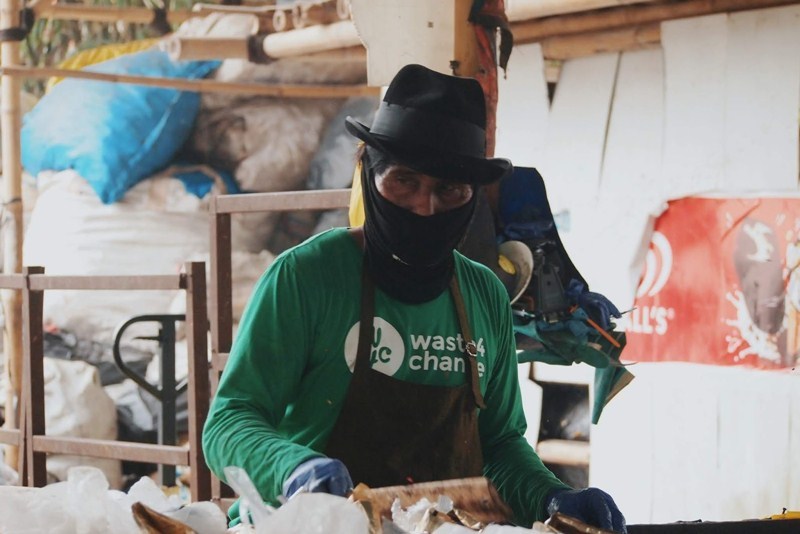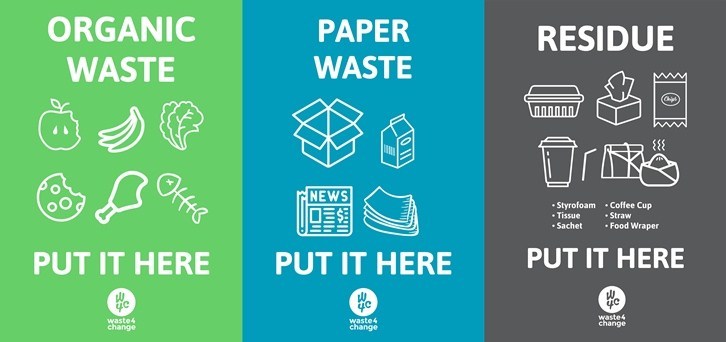Waste4Change is a social enterprise providing waste management services from upstream to downstream.

Nearing the end of his schooling during the 1990s, Mohamad Bijaksana Junerosano says he was at a loss. There wasn’t much information regarding University courses and he didn’t know where to turn for help, he recalls. So, he prayed for guidance, he said. As luck would have it, a television show about waste issues in Jakarta caught his attention – and he believed he had found his answer. Now, nearly two decades after that epiphany, he is a social entrepreneur championing causes for the environment.
The Bandung Institute of Technology graduate realised he needed to become part of the solution to Jakarta’s—and Indonesia’s—growing waste problem. In 2008, he founded Greeneration Indonesia Foundation, which oversees the business he runs.
Starting with the production of ‘Bagoes’— environmentally friendly bags— the Foundation for Plastic Pouches, the company eventually morphed into Waste4Change, a company that in addition to being engaged in environmental consultancy also conducts training and feasibility studies.

“I wanted to start a solution, an organisation. The idea is to create a service provider to solve the waste problem in Indonesia. We have the dream to create a clean Indonesia with zero waste,” the erudite entrepreneur says.
Through Waste4Change, Sano continues to serve as an agent for change in waste management by facilitating environmental awareness among the general public as well as everyone directly involved in waste, such as garbage collectors and those who work at landfills.
Through collection facilities, or drop boxes, packaging waste is collected at regular intervals. These collection facilities were started in collaboration with PRAISE (Packaging and Recycling Association for Indonesia Sustainable Environment) which was founded by six companies (Danone, Coca Cola, Nestle, Tetra Pak, Indofood and Unilver). These drop boxes help increase awareness of waste and help minimise packaging waste.


“We will make sure the waste is manged properly to develop the circular economy,” Sano says of the system where consumers hand over their packaging waste to be repurposed.
With its internal eco system with two companies and a foundation, it’s easy to extrapolate on the foundation’s mission to educate, advocate, and campaign, Sano notes. Advocacy has involved working with provincial heads and to create a network of partners that help in the organisation’s mission. “We need to create awareness, we have a big plan. We want to innovate in technology, be more efficient and more effective in our operations. We believe we’re on the tipping point of change,” he notes.







